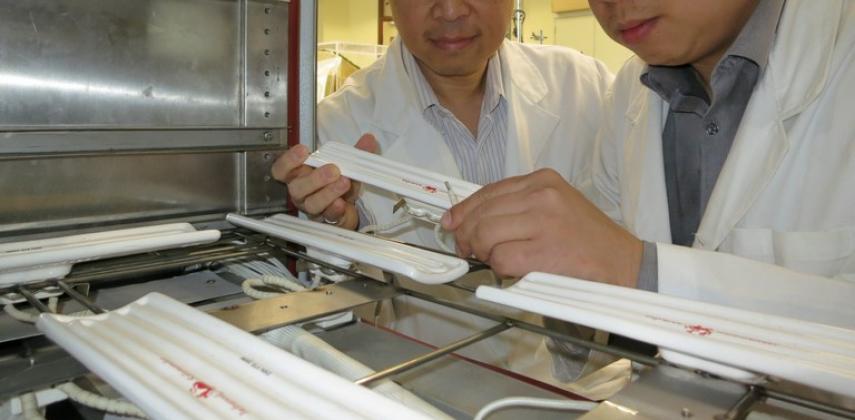Hong Kong's Public Works Laboratories (PWL) are the unseen quality control behind every public construction project in the city. Under the guidance of 13 professional geotechnical engineers, 94 technical grade staff carry out more than half a million specialised tests each year, conducting analysis of soil, rock, concrete, bitumen and steel, as well as setting construction standards and supporting slope safety across the city.
The PWL was born as the Geotechnical Control Office, a government department set up to improve slope safety in the wake of several fatal landslides in the 1970s. Now, while it is recognised as a world leader in landslide risk assessment, its remit is much wider, offering technicians and engineers a rewarding and interesting career.
The 10 major infrastructure projects announced in 2007 are a mother lode for the geotechnical engineering community, with the department estimating that the number of tests run through the PWL will probably double to more than a million by 2016.
"With many big public works projects, the [construction] testing industry will be booming these next few years," says Tony Lau, senior geotechnical engineer with the Civil Engineering and Development Department (CEDD). Indeed, a major recruitment drive will soon be underway to staff an entirely new laboratory in Siu Ho Wan, near Tung Chung in Lantau, dedicated to the construction of the Hong Kong-Zhuhai-Macau Bridge.
The lab will be a beehive of testing activity, with aggregates, concretes, steel and even bitumen running through the lab 24 hours a day, seven days a week for the estimated four years of construction. Managed by an external consultant, the 50-strong laboratory will employ an estimated four senior site laboratory technicians (SSLTs) and 28 site laboratory technicians (SLTs) when it opens in mid-2012.
The SLT position as offered at the central laboratory, the new facility or at one of the five existing regional testing centres, is an attractive option for fresh graduates, offering a unique stepping stone into the profession. There are only a handful of commercial laboratories in Hong Kong, and none are likely to recruit fresh graduates with no working experience, according to Lau. But entry-level SLTs at PWL require only academic and language qualifications.
"They are quite sought after by commercial labs once they gain this experience," says senior geotechnical engineer Rick Tam.
SLTs and experienced SSLTs may also apply for a technical officer post - a civil service grade that may involve the more exciting elements of geotechnical work - as vacancies arise.
For the most junior, the work may not be too exciting at first.
A large part of the regional laboratory work involves the routine sand replacement test to measure the density of artificial slopes and landscaping. SLTs carry out around 60,000 of these every year, along with playground surface impact tests and skid testing on roads, carriageways and airport runways. While the work may be mundane, it is essential in construction safety, preventing landslips and slope collapse.
The PWL also develops testing facilities and carries out technical development work on building materials. Technology developed by PWL is at the cutting edge of civil engineering, helping improve quality of buildings and reduce testing time.
For example, its infrared drying techniques cut soil moisture tests from 12 hours to 3.5 hours, while its "aggregate alkaline reaction potential" tests can uncover potentially dangerous reactions between aggregates and cement in just a few weeks, cutting the testing time from a year.
The labs also undertake forensic work and act as an expert witness for the government in court. For example, PWL was responsible for testing the bamboo platform scaffolding that collapsed and killed six people during the construction of the International Commerce Centre in September 2009. It also tested concrete cores and steel from a building in Ma Tau Wai Road, which collapsed in January 2010, killing four people.


